POMP and CIRCUMSTANCE: Music Fit for Kings and Queens PART 2: CEREMONIAL and OCCASIONAL MUSIC
A Survey of British Royal Music from Henry Purcell to Michael Tippett
Part 2 - Ceremonial and Occasional Music
Beyond the Coronation, I turn now to music written for other Royal ceremonial occasions (like funerals) and special occasions. I begin with more 20th Century music.
Britten: Gloriana and Tippett: Suite for the Birthday of Prince Charles
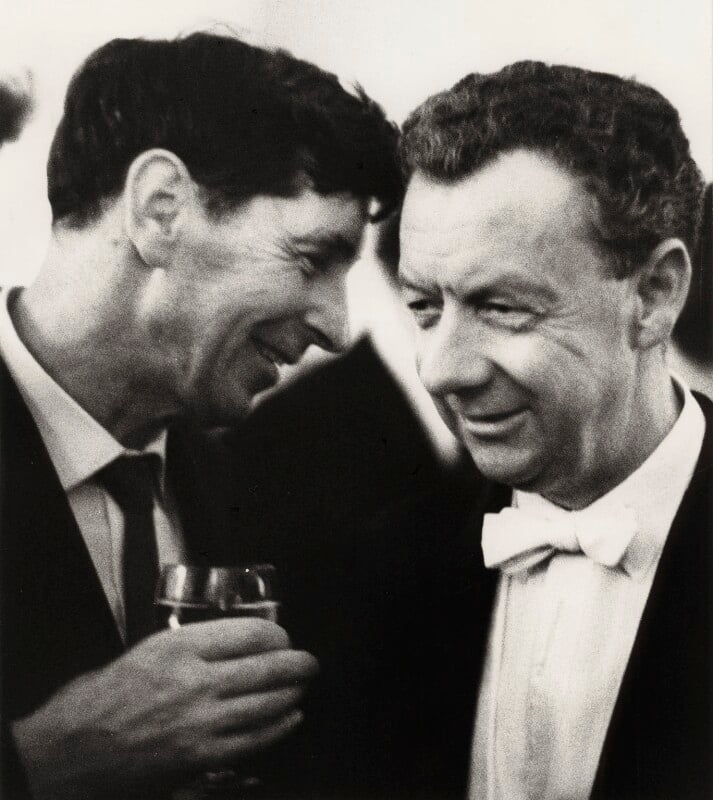 Michael Tippett (l.) and Benjamin Britten
Michael Tippett (l.) and Benjamin Britten
We turn now to the two most prominent British composers of the generation after Walton, Benjamin Britten (1913 - 1976) and Michael Tippett (1905 - 1998), each of whom wrote works to Royal commissions, but with less immediately successful results. However, time has proven that these works are by no means minor entries in their respective composers’ body of work, and both exist in significant recordings that any lover of 20th-century music should investigate.
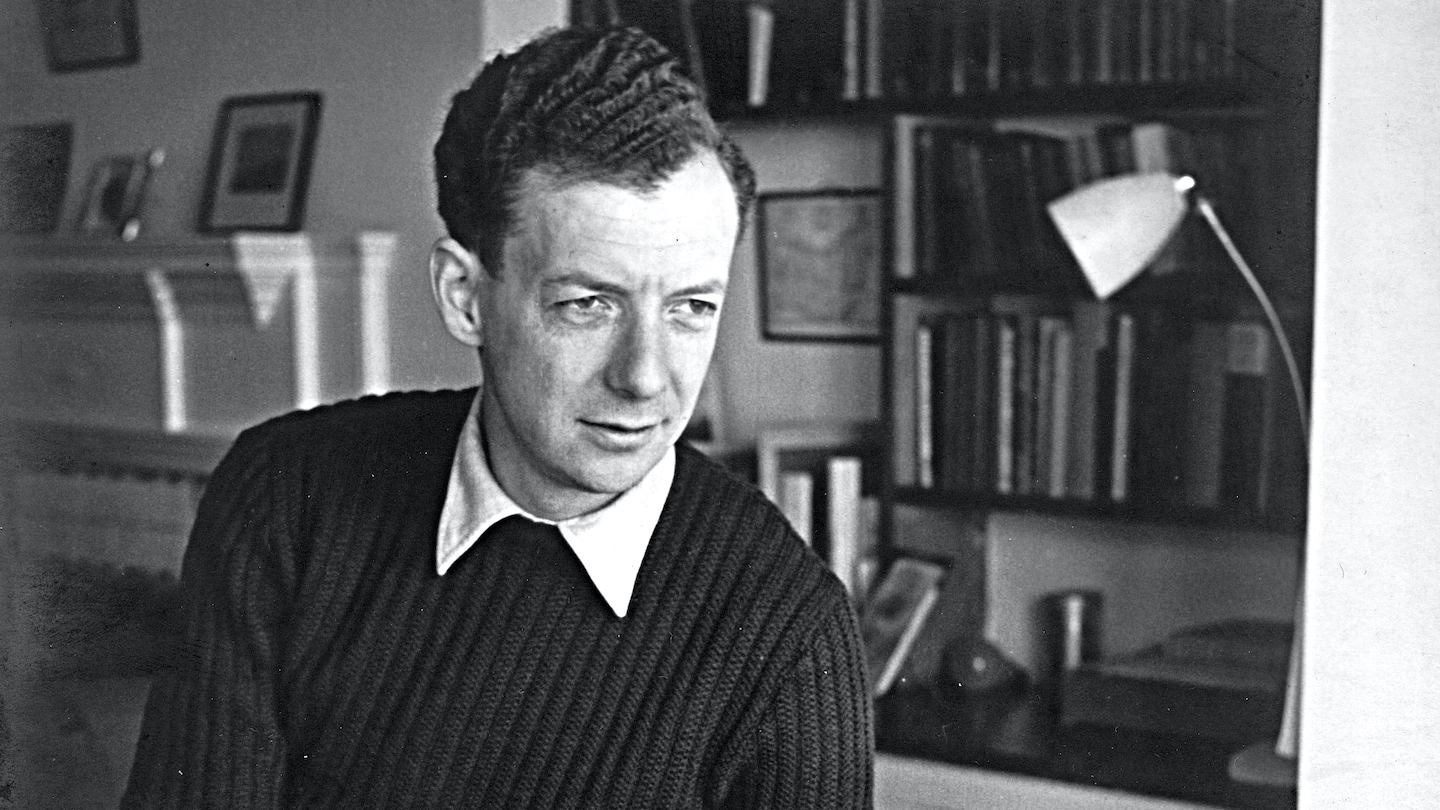 Benjamin Britten
Benjamin Britten
Such was the prominent standing of Britten in his homeland’s cultural life after the Second World War that he was commissioned to write a full-scale opera to celebrate the ascension of Elizabeth II. Britten had cemented his international reputation, and single-handedly revived England’s standing in the world of opera, with Peter Grimes (1945). The work instantly became a mainstay of the repertoire, an unequalled feat in the world of opera post-Verdi, Wagner and Richard Strauss. This was followed by The Rape of Lucretia (1946), Albert Herring (1947), The Little Sweep (1949), and Billy Budd (1951). So it seemed only logical that Britten would be the person to create a work fully up to the demands of celebrating the new Queen’s namesake and celebrated ancestor.
Whatever the Palace, high society and London’s arts lovers anticipated, they did not get what they expected, and the resulting savaging in the press and general fallout came close to derailing Britten’s career. Instead of a lofty celebration of Queen Elizabeth I the opera anticipates the TV series The Crown in its piercing examination of the toll upon Elizabeth’s private life and her humanity exacted by the weight and duty of her office. The opera focuses on her doomed love affair with the Earl of Essex, whom the Queen ends up executing for High Treason.
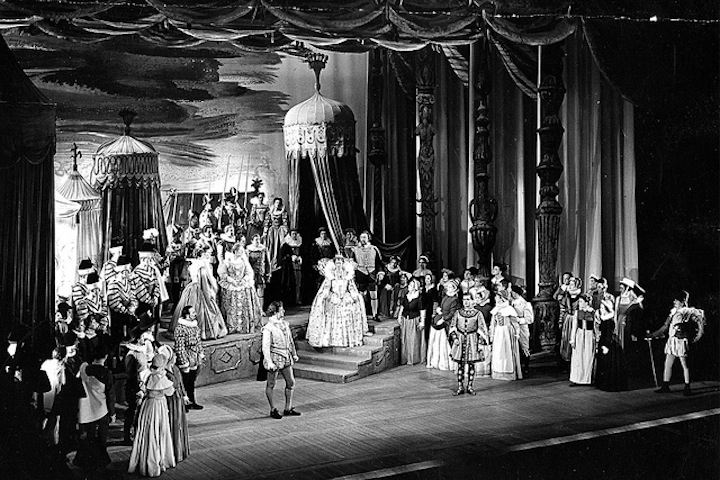 Britten's Gloriana: Original Production at Royal Opera House, Covent Garden
Britten's Gloriana: Original Production at Royal Opera House, Covent Garden
No doubt some of the vitriol in the opera’s critical response arose out of the chance to finally “have a go” at the composer who, despite all his successes (and probably because of them), was never part of “the Establishment”. He was a conscientious objector who had spent the war in America, and was gay - although not publicly “out” (as no one was in those days, since being a practicing homosexual was a criminal offence punishable by a prison term).
Apparently audiences after Gloriana’s premiere, and Elizabeth herself, were not offended by the opera (though Elizabeth was never especially known for her sophisticated artistic tastes, so I am not sure whether this is to be taken as gospel, or even as a complement). What is certain is that, to this day, Gloriana remains the neglected step-child in the canon of Britten’s works and is rarely performed. Which is a great shame because it is full of glorious music and - like all his operas - remains a penetrating character study.
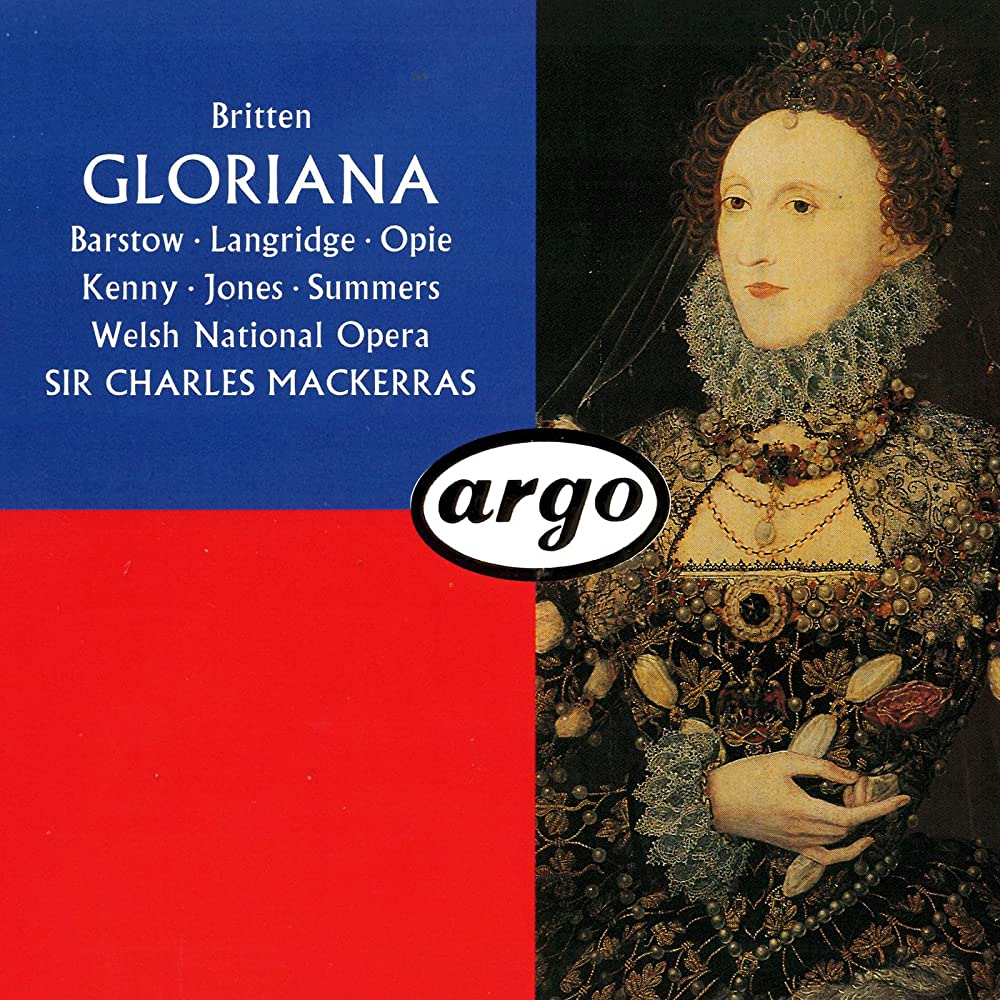 The only recording is a fine one, issued on CD by Argo in 1993, helmed by the redoubtable Charles Mackerras with the chorus and orchestra of Welsh National Opera. Admittedly I find Josephine Barstow in the title role a little shrill, but the rest of the cast headed by Philip Langridge (one of the great Britten interpreters) is top-notch. Likewise the sound, which conveys a great sense of a theatrical space (one of the engineers is Simon Eadon, among the best of his generation). If you want to actually see the work, there is a typically fine production by David McVicar on YouTube.
The only recording is a fine one, issued on CD by Argo in 1993, helmed by the redoubtable Charles Mackerras with the chorus and orchestra of Welsh National Opera. Admittedly I find Josephine Barstow in the title role a little shrill, but the rest of the cast headed by Philip Langridge (one of the great Britten interpreters) is top-notch. Likewise the sound, which conveys a great sense of a theatrical space (one of the engineers is Simon Eadon, among the best of his generation). If you want to actually see the work, there is a typically fine production by David McVicar on YouTube.
I am a huge Britten fan, and have been since I started singing some of his choral music at the age of 10; one of my most treasured possessions is a letter he wrote to me after I sent him some fan mail - he died within a year of writing it. In preparation for this article I re-listened to this set and found myself thoroughly engrossed. No, it’s not Grimes, Budd, or Turn of the Screw (masterpieces all), but it’s well worth your attention.
Try to find the original Argo box which contains the full libretto and excellent articles by Britten scholars Peter Evans and Donald Mitchell, plus a fascinating selection of Britten’s own correspondence regarding the creation of the work.
Benjamin Britten: Gloriana
Libretto by William Plomer
Josephine Barstow, Philip Langridge, Della Jones, Jonathan Summers, Yvonne Kenny, Alan Opie, Richard van Allan, Bryn Terfel, Willard White, John Shirley-Quirk, John Mark Ainsley
Orchestra and Chorus of the Welsh National Opera
Conducted by Charles Mackerras
Recording Producers: Andrew Cornall, Simon Eadon
Recording Engineers: John Dunkerley, Simon Eadon
Recorded in the Brangwyn Hall, Swansea 1992
ARGO 2-CD Digital 440 213-2
Music: 10 Sound: 8
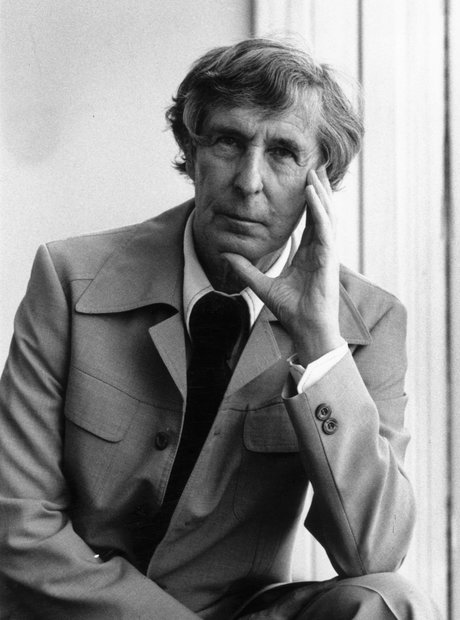 Michael Tippett
Michael Tippett
Even if Britten never felt fully embraced by his country’s “establishment” - musical or otherwise - he was a complete insider compared to his compatriot, Michael Tippett. Like Britten, Tippett was a conscientious objector who actually went to jail for his beliefs, and was homosexual at a time when this could likewise put you in jail. (Tippett’s discomfort with his own sexuality led him to explore Jungian psychoanalysis in the 30s - long before such stuff was fashionable or even acceptable - and elements of his explorations found their way into his work). Unlike Britten, for Tippett the act of composition came with great difficulty, and he labored long and hard on all his works. His idols were Beethoven and Stravinsky, and although he continued to work stubbornly, like Britten, in what became the increasingly unfashionable idiom of tonality, he was more of an overt modernist than his younger contemporary.
Tippett also incurred the disdain of the intelligentsia with his self-penned texts and opera libretti that fully embraced the counter-culture in all its flower-power glory. Not surprisingly he also embraced pop music and the blues (like that other composer-iconoclast, Leonard Bernstein), incorporating elements of both into his works. He brilliantly built his breakthrough work, the oratorio A Child of Our Time (composed 1939-1941), around a series of African-American Spirituals which act structurally like the chorales do in Bach’s oratorios.
The Suite for the Birthday of Prince Charles was commissioned by the BBC in 1948 to celebrate the birth of the new heir to the throne. It was first performed in-studio conducted by Adrian Boult. Interestingly, Tippett seems far more “in tune” with the subject of his musical homily than does Britten, most surprising given the older man’s more overtly anti-establishment sympathies. It is an utterly delightful work, composed while Tippett was deep in the middle of writing his first, and most accessible, opera, A Midsummer Marriage. (He even quotes some material from the opera). The Suite deftly conveys the sense of both a private celebration of new life - the gift to a young family of a new child - with the public celebration of the arrival of the heir apparent. Tippett, who always loved early music and folk melody, here channels a variety of older tunes from around the British Isles within his own instantly recognizable idiom. It is a charming work, echoing Ravel’s Mother Goose with its hearkening back to the world of the nursery.
Tippett: Suite for the Birthday of Prince Charles - Procession and Dance
There are two fine performances to be found on vinyl. Georg Solti’s rendition with the Chicago Symphony Orchestra on a 1981 Decca/London LP (UK or Dutch pressing), coupled with the premiere recording of Tippett’s 4th Symphony, has all the bite and verve you would expect from these performers, and the early digital engineering by the James Mallinson/James Lock team is perfectly acceptable. But it may lack some charm and nursery warmth. For those qualities, look no further than the recording with the LSO conducted by Tippett’s greatest champion, Colin Davis.
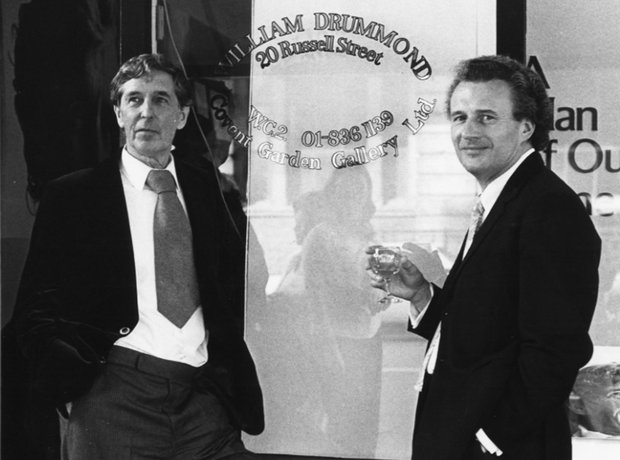 Michael Tippett and Colin Davis
Michael Tippett and Colin Davis
Coupled with the benchmark recording of Tippett’s First Symphony (as indeed are all the Davis Tippett recordings), this 1976 Philips LP (UK or Dutch pressing) has that analogue warmth in spades, so it decisively edges out Solti’s more Stravinsky-an take on this underrated and underperformed score. This is a record to seek out for sure.
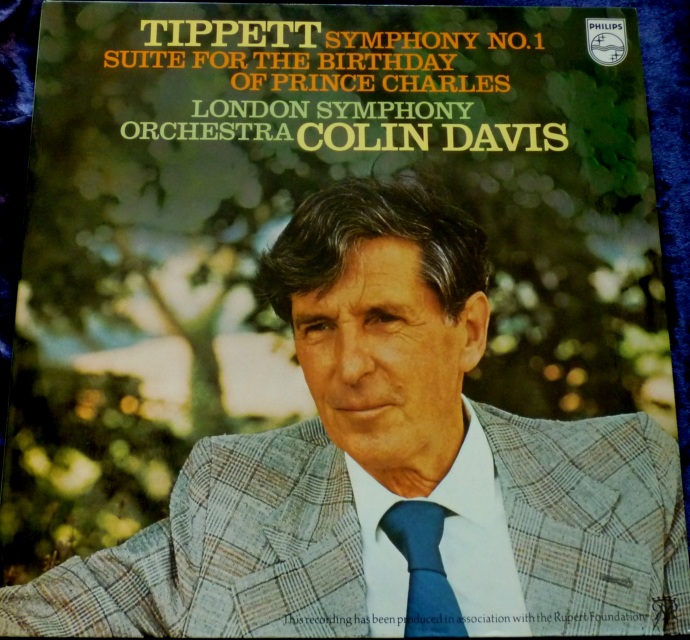 Michael Tippett: Symphony No. 1, Suite for the Birthday of Prince Charles
Michael Tippett: Symphony No. 1, Suite for the Birthday of Prince Charles
London Symphony Orchestra conducted by Colin Davis
Philips LP 9500 107 (1976) UK or Netherlands
Music: 10 Sound: 9
Handel: Water Music
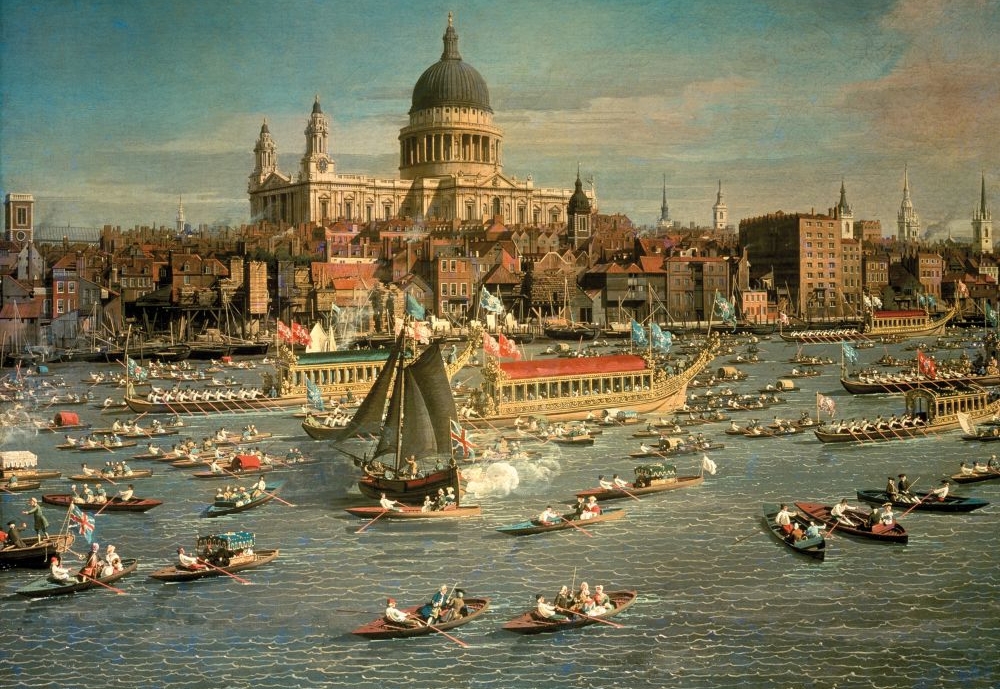 Giovanni Antonio Canal (Canaletto): London, The Thames with View of the City
Giovanni Antonio Canal (Canaletto): London, The Thames with View of the City
This was the first of Handel’s grand Royal “entertainments”, composed in 1717 for a procession of boats and barges along the River Thames through the heart of London, headed by King George I and his courtiers. Along with the Royal Fireworks Music and Messiah, this is Handel’s most familiar and popular music.
It must have been quite a scene: some 50-odd musicians piled onto a barge of barely sufficient size to accommodate such a number, floating upstream through the city, passing under London Bridge, taking a short break in Chelsea, then turning back to end at Whitehall. Throughout, the procession was accompanied by a flotilla of assorted private boats, and people lined the river banks to enjoy the spectacle. The King liked the music so much he ordered it played at least three times between the start of the journey at 8pm, and when it ended - after midnight.
Without going into musicological detail, the music exists essentially in three suites, but the range and number of movements included on different recordings varies enormously. If you want to get the maximum amount of music, opt for versions which include all three suites. Having said that, there are highly recommendable earlier recordings on conventional, non-period instruments that only include a selection of movements, or feature the very popular re-orchestrations of Hamilton Harty.
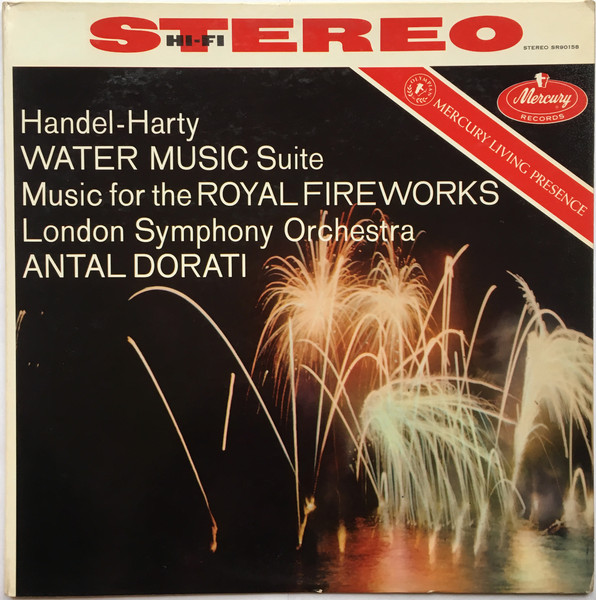 Foremost amongst these is Antal Dorati’s 1958 account with the London Symphony Orchestra on Mercury Living Presence (coupled with the Royal Fireworks Music). The Hamilton Harty version may not be “authentic”, but boy is it fun! Dorati was one of those conductors, like Neville Marriner or Charles Mackerras, who seemed almost genetically incapable of making a bad recording. It’s a shame this was never reissued on vinyl by Speaker’s Corner or Classic Records, but, failing a clean original, the CD version, transferred by Wilma Cozart Fine herself, is perfectly acceptable. The recording is so vivid in that Mercury way that in a few places where the double basses come in with a forthright plucked bass note I feel like we are about to launch into a jazz version!
Foremost amongst these is Antal Dorati’s 1958 account with the London Symphony Orchestra on Mercury Living Presence (coupled with the Royal Fireworks Music). The Hamilton Harty version may not be “authentic”, but boy is it fun! Dorati was one of those conductors, like Neville Marriner or Charles Mackerras, who seemed almost genetically incapable of making a bad recording. It’s a shame this was never reissued on vinyl by Speaker’s Corner or Classic Records, but, failing a clean original, the CD version, transferred by Wilma Cozart Fine herself, is perfectly acceptable. The recording is so vivid in that Mercury way that in a few places where the double basses come in with a forthright plucked bass note I feel like we are about to launch into a jazz version!
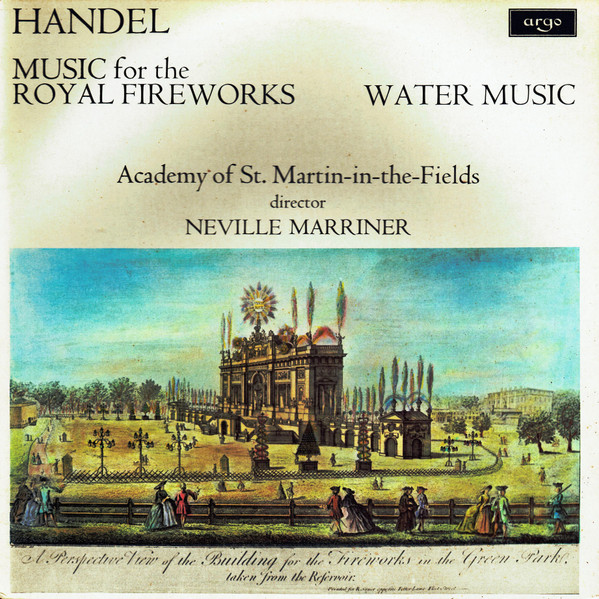 One of the most popular recordings of this music for years was the one on Argo by Neville Marriner and the Academy of St. Martin-in-the-Fields from 1971. It featured a selection from the suites, and was paired with the Royal Fireworks Music, all performed on regular instruments, but with an awareness of the new scholarship that was redefining the approach to Baroque music. Textures are transparent, tempi are lively, with well-sprung rhythms. Marriner and his players re-recorded this music several times during their recording career together, but this is the truly classic version. Argo shared its engineers with Decca, so the sound is first-rate, and you will find many copies in the used bins (though always be sure to go for UK or later Dutch pressings).
One of the most popular recordings of this music for years was the one on Argo by Neville Marriner and the Academy of St. Martin-in-the-Fields from 1971. It featured a selection from the suites, and was paired with the Royal Fireworks Music, all performed on regular instruments, but with an awareness of the new scholarship that was redefining the approach to Baroque music. Textures are transparent, tempi are lively, with well-sprung rhythms. Marriner and his players re-recorded this music several times during their recording career together, but this is the truly classic version. Argo shared its engineers with Decca, so the sound is first-rate, and you will find many copies in the used bins (though always be sure to go for UK or later Dutch pressings).
With the arrival of period instruments in the late 70s and HIP (Historically Informed Performance), the Water Music began a long series of distinguished outings on vinyl and CD.
Early out of the gate in 1978 were versions by the great Dutch conductor and early music specialist Nicolaus Harnoncourt with his Concentus Musicus Wien on Telefunken, and Christopher Hogwood with his Academy of Ancient Music on Decca’s L’Oiseau-Lyre. Both breathe new life into this sometimes over-familiar music by virtue of the period instrument sonorities, especially the wind and brass. Handel delighted in featuring what were then newer instruments: the somewhat raucous horns in particular.
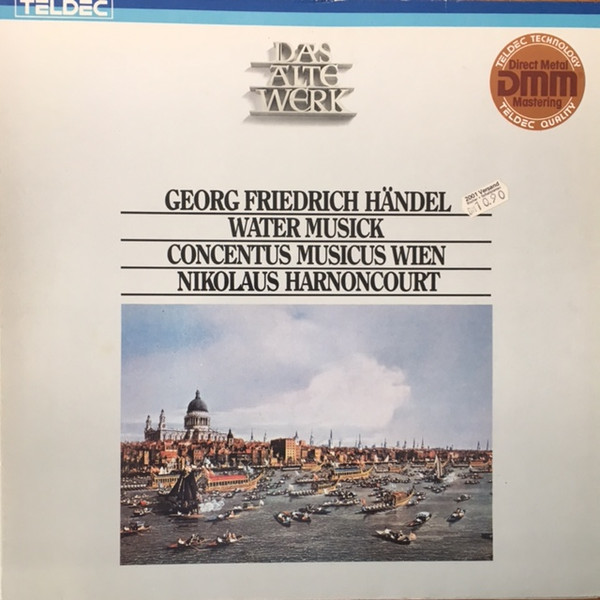 Harnoncourt channels his inner schoolboy to encourage the ruder tendencies of his valveless horn players, who oblige with unruly raspberries at every opportunity. In general you might say Harnoncourt is more likely to accentuate the rhythmic and sonic individualities in the music; Hogwood is somewhat less interventionist. Swings and roundabouts. The country-of-origin pressings for each are the way to go: Haroncourt-Germany, Hogwood-UK; the German DMM pressing for Hogwood adds detail but loses some warmth.
Harnoncourt channels his inner schoolboy to encourage the ruder tendencies of his valveless horn players, who oblige with unruly raspberries at every opportunity. In general you might say Harnoncourt is more likely to accentuate the rhythmic and sonic individualities in the music; Hogwood is somewhat less interventionist. Swings and roundabouts. The country-of-origin pressings for each are the way to go: Haroncourt-Germany, Hogwood-UK; the German DMM pressing for Hogwood adds detail but loses some warmth.
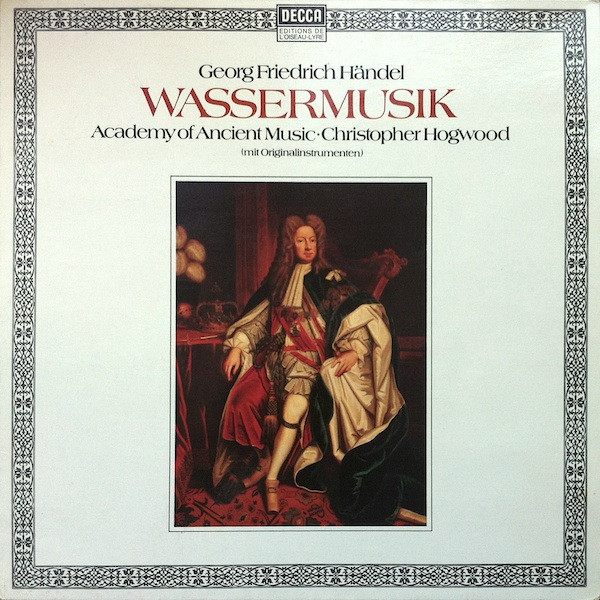 I must confess that my current favorite of these earlier HIP recordings is Trevor Pinnock’s with the English Concert (many of the same players as in AAM), recorded in Henry Wood Hall by DG Archiv in 1983. Yes, it’s early digital, but I just love Pinnock’s way with the music and the usual recording team under the leadership of Dr. Andreas Holschneider does a first rate job. (This was a period when DG’s main label digital efforts were highly variable, but I find these Archiv sets engineered by Hans-Peter Schweigmann far more palatable and reliable sonically). Go for the original German pressings with gatefold cover.
I must confess that my current favorite of these earlier HIP recordings is Trevor Pinnock’s with the English Concert (many of the same players as in AAM), recorded in Henry Wood Hall by DG Archiv in 1983. Yes, it’s early digital, but I just love Pinnock’s way with the music and the usual recording team under the leadership of Dr. Andreas Holschneider does a first rate job. (This was a period when DG’s main label digital efforts were highly variable, but I find these Archiv sets engineered by Hans-Peter Schweigmann far more palatable and reliable sonically). Go for the original German pressings with gatefold cover.
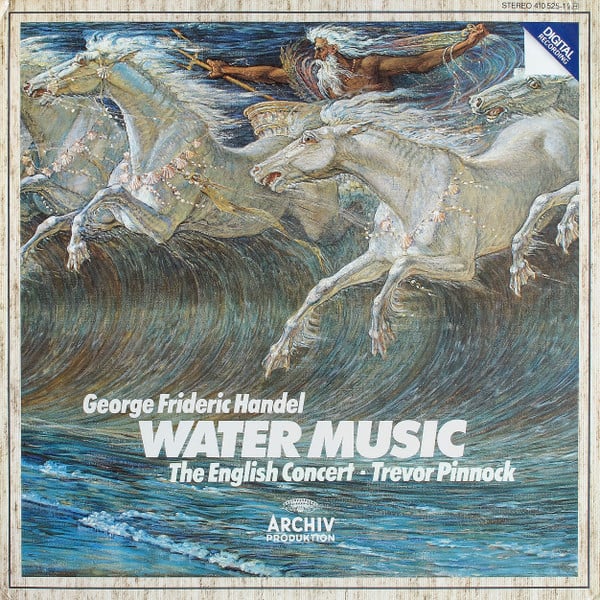 The joy of Handel’s music lies in his spinning of endlessly hummable tunes within popular dance forms of the time, which classical composers had appropriated over the years for their “art” music offerings. His use of different instrumental combinations is so inventive, all to make sure the music carried across the open water with maximum effect. If you want a more recent recording that really strives to recreate that sonic impact, try Herve Niquet with Le Concert Spirituel on Glossa (CD/SACD). With larger forces you get a real sense of the scale of Handel’s original conception, and it’s truly royal and magisterial. I would also not want to be without Jordi Savall’s characteristically colorful version on Astrée Auvidis.
The joy of Handel’s music lies in his spinning of endlessly hummable tunes within popular dance forms of the time, which classical composers had appropriated over the years for their “art” music offerings. His use of different instrumental combinations is so inventive, all to make sure the music carried across the open water with maximum effect. If you want a more recent recording that really strives to recreate that sonic impact, try Herve Niquet with Le Concert Spirituel on Glossa (CD/SACD). With larger forces you get a real sense of the scale of Handel’s original conception, and it’s truly royal and magisterial. I would also not want to be without Jordi Savall’s characteristically colorful version on Astrée Auvidis.
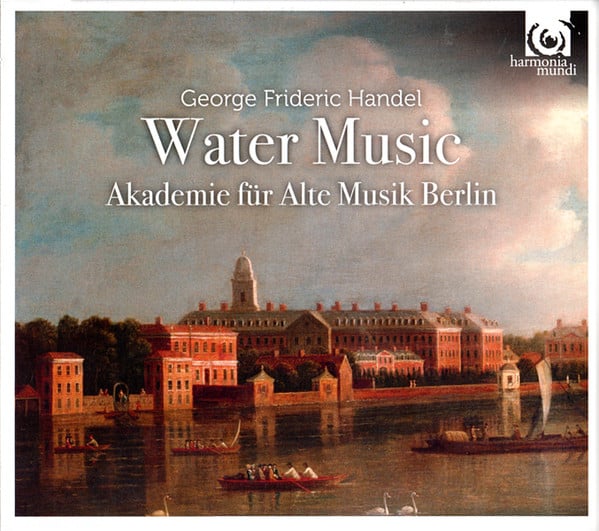 But my current CD fave - as it is for many - is the 2016 account on Harmonia Mundi by the Akademie für Alte Musik Berlin, led by its concertmaster Georg Kallweit. It has the advantage of being one of the most complete surveys of all the music Handel wrote, and fully captures the huge range of musical expression contained within this miraculous score. The loud bits belt, and the softer bits caress and woo. It is an absolute delight and makes this music fresh again - no small feat. It goes without saying for this label that the recording is first-rate, and the documentation exemplary.
But my current CD fave - as it is for many - is the 2016 account on Harmonia Mundi by the Akademie für Alte Musik Berlin, led by its concertmaster Georg Kallweit. It has the advantage of being one of the most complete surveys of all the music Handel wrote, and fully captures the huge range of musical expression contained within this miraculous score. The loud bits belt, and the softer bits caress and woo. It is an absolute delight and makes this music fresh again - no small feat. It goes without saying for this label that the recording is first-rate, and the documentation exemplary.
Handel (arranged Hamilton Harty): Water Music and Music for the Royal Fireworks
London Symphony Orchestra conducted by Antal Dorati
Engineer: C. Robert Fine
Mercury Living Presence LP 1958 SR 90158 (US)
Music: 10 Sound: 10
Handel: Water Music and Music for the Royal Fireworks
Academy of St. Martin-in-the-Fields directed by Neville Marriner
Argo LP ZRG 697 (UK 1972)
Music: 10 Sound: 9
Handel: Water Music
The English Concert directed from the harpsichord by Trevor Pinnock
Production: Dr. Andreas Holschneider/Charlotte Kriesch
Recording Supervision: Dr. Gerd Ploebsch
Recording Engineer: Hans-Peter Schweigmann
Editing: Klaus Behrens
Recorded in Henry Wood Hall 1983
DGG Archiv LP Digital 410 525-1 (West Germany)
Music: 10 Sound: 9
Handel: Water Music
Academy of Ancient Music directed from the harpsichord by Christopher Hogwood
Record Producer: Peter Wadland
Recording Engineer: John Dunkerley
Recorded at Walthamstow Assembly Hall, 1978
L’Oiseau-Lyre LP 1978 DSLO 543 (UK); Decca/Teldec 6.42445 AZ
Music: 10 Sound: 9
Handel: Water Music
Akademie fur Alte Musik Berlin conducted by Georg Kallweit
Recording Engineer: René Môller
Recorded at Teldex Studio Berlin, 2015
Harmonia Mundi CD HMC 902216
Music: 10 Sound: 9
Handel: Royal Fireworks Music
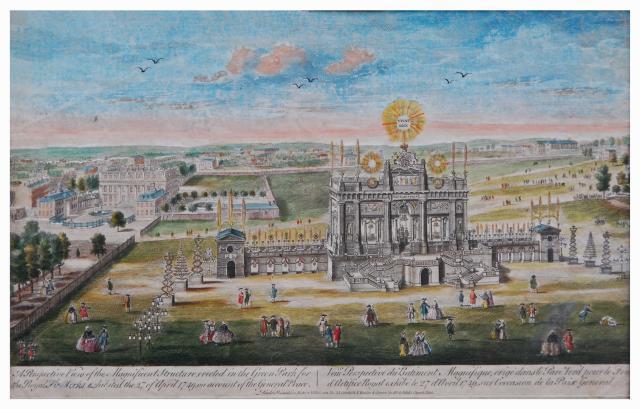 The Structure Built in Green Park for the Royal Fireworks Display
The Structure Built in Green Park for the Royal Fireworks Display
By the time Handel was commissioned to write another musical entertainment on a grand scale, he had become - like Elgar centuries later - England’s de facto, if unofficial, “Music Laureate”. In 1749, to celebrate the end of the War of the Austrian Succession, the authorities planned a spectacular fireworks display in Green Park in the heart of the capital, to be preceded by a new orchestral work by Handel on a similarly grand scale. King George II reveled in matters military, and was the last British monarch to actually lead his troops onto the battlefield. Not so keen a music lover as his forbears, if forced he fancied music of a military hue - all winds and brass - and the composer, who wanted to supplement the orchestra with a traditional string section, found himself at odds with the monarch. This is detailed in an entertaining back-and-forth correspondence between the composer and the authorities. It isn’t known whether the final complement of some 100 musicians did include strings, but most recordings of this popular work include them.
As with the Water Music, the Royal Fireworks music combines a grand Ouverture in the French style (a grand, slow processional followed by a fast movement, returning to the slow march to conclude), with a succession of movements in various dance forms: Hornpipe, Jig, Minuet etc. And again we are treated to Handel’s gift for catchy melody and invention.
Handel’s popularity was such that the public rehearsal in the Vauxhall Gardens caused London’s first recorded traffic jam on London Bridge, with carriages en route to the festivities brought to a standstill for three hours. Some 12,000 were reported to be in the crowd.
For the event itself, a massive wooden structure for delivering the fireworks was constructed in Palladian style. Unfortunately, part of it caught fire during the display! By then the musicians, who had performed Handel’s score nearby before the fireworks began, were safely departed.
The whole story of this extraordinary event is catalogued in entertaining detail by Robert King in the booklet notes for his recording on Hyperion.
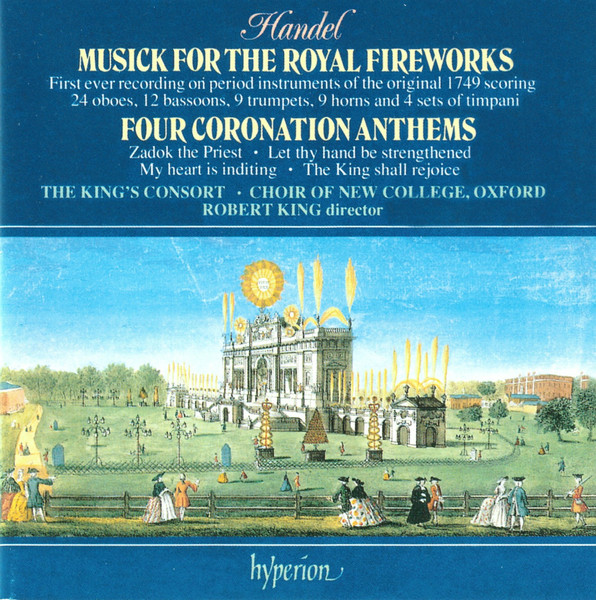
At the time this was released in 1989 on CD it was the first recording using an all-wind and brass band of period instruments, and they make a splendid racket. This is coupled with the aforementioned excellent rendition of the Four Coronation Anthems featuring the Choir of New College, Oxford. I am not sure this is the version of the Royal Fireworks Music I would want to listen to exclusively, but it is definitely worth hearing.
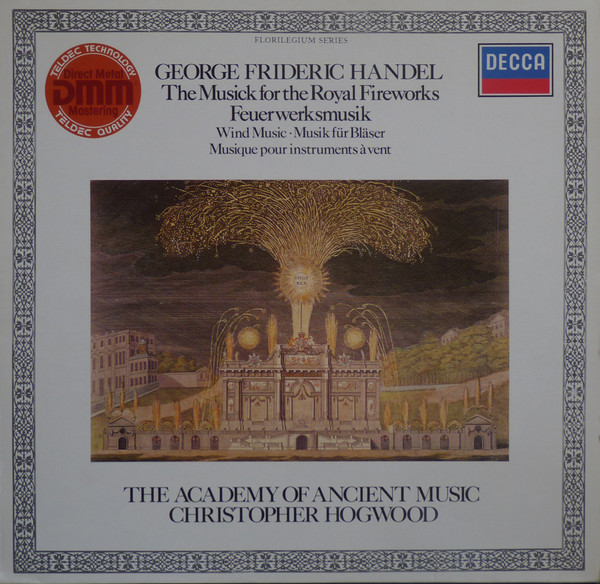
For a more mainstream vinyl recommendation I would stick with some of the same suspects I mentioned for the Water Music: Christopher Hogwood on Decca L’Oiseau-Lyre, Trevor Pinnock on DG (both period instruments), and Neville Marriner with ASMF on Argo. (Pinnock later re-recorded the work with an all-wind-and-brass ensemble).
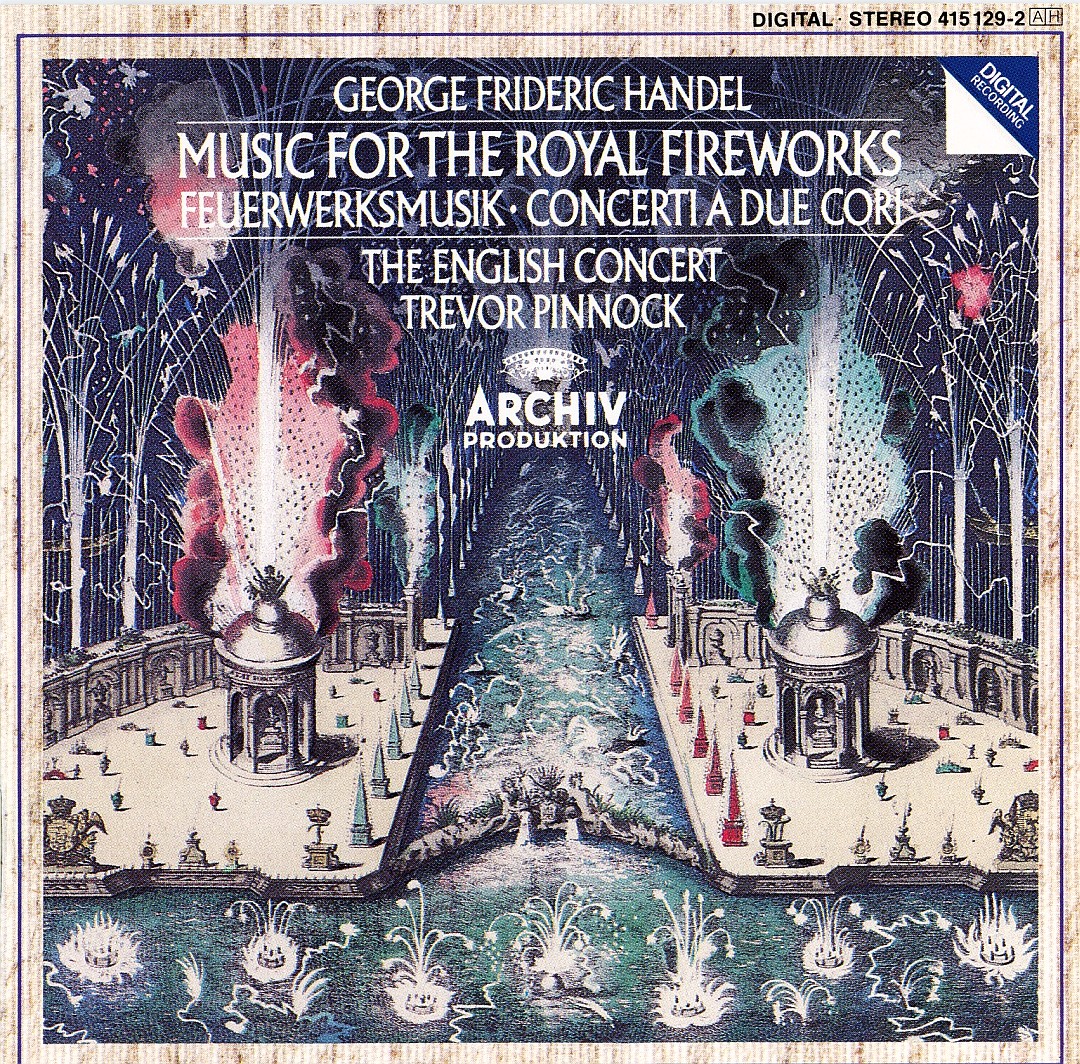
For a more recent CD pick, you are spoiled for choice, but I am going to take this opportunity to recommend a recording by one of the most consistently imaginative of the newer period instrument ensembles - but one maybe you are not familiar with - and that is Zefiro led by Alfredo Bernardini. This 2015 rendition on Arcana manages to combine martial majesty with textural and sonic variety in a way that lets this music really breathe. Of note is the fact that this was actually recorded outside in the cloisters of a former Jesuit college in Sicily - and the sound is excellent.
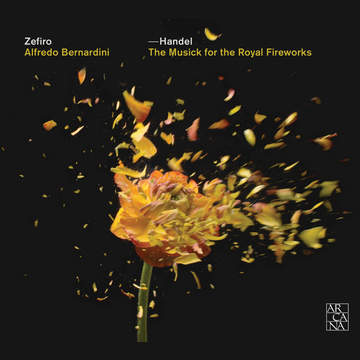
Handel: Music for the Royal Fireworks, Concerti a Due Cori
The English Concert directed from the harpsichord by Trevor Pinnock
Production: Dr. Andrea Holschneider, Charlotte Kriesch
DSRecording Supervision: Dr. Gerd Ploebsch
Recording Engineer: Hans-Peter Schweigmann
Editing: Gregor Zielinsky
Recorded in St. John’s, Smith Square 1984
DGG Archiv LP Digital 415 129-1
Music: 10 Sound: 8
Handel: Music for the Royal Fireworks, Sonata for Flute and Continuo, Aria 1, Aria 2
The Academy of Ancient Music directed from the harpsichord by Christopher Hogwood
Record Producer: Peter Wadland
Sound Engineer: John Dunkerley
L’Oiseau Lyre LP 1981 DSLO 548 (UK); Decca/Teldec 26 511-6 (Germany)
Music: 10 Sound: 8
Handel: Music for the Royal Fireworks, Concerti a Due Cori
Zefiro directed by Alfredo Bernardini
Recording Producer, Engineer and Editor: Jens Jamin
Recorded in the cloister of the Jesuit College, Catania
Arcana CD A386
Purcell - Birthday Odes and Funeral Music for Queen Mary
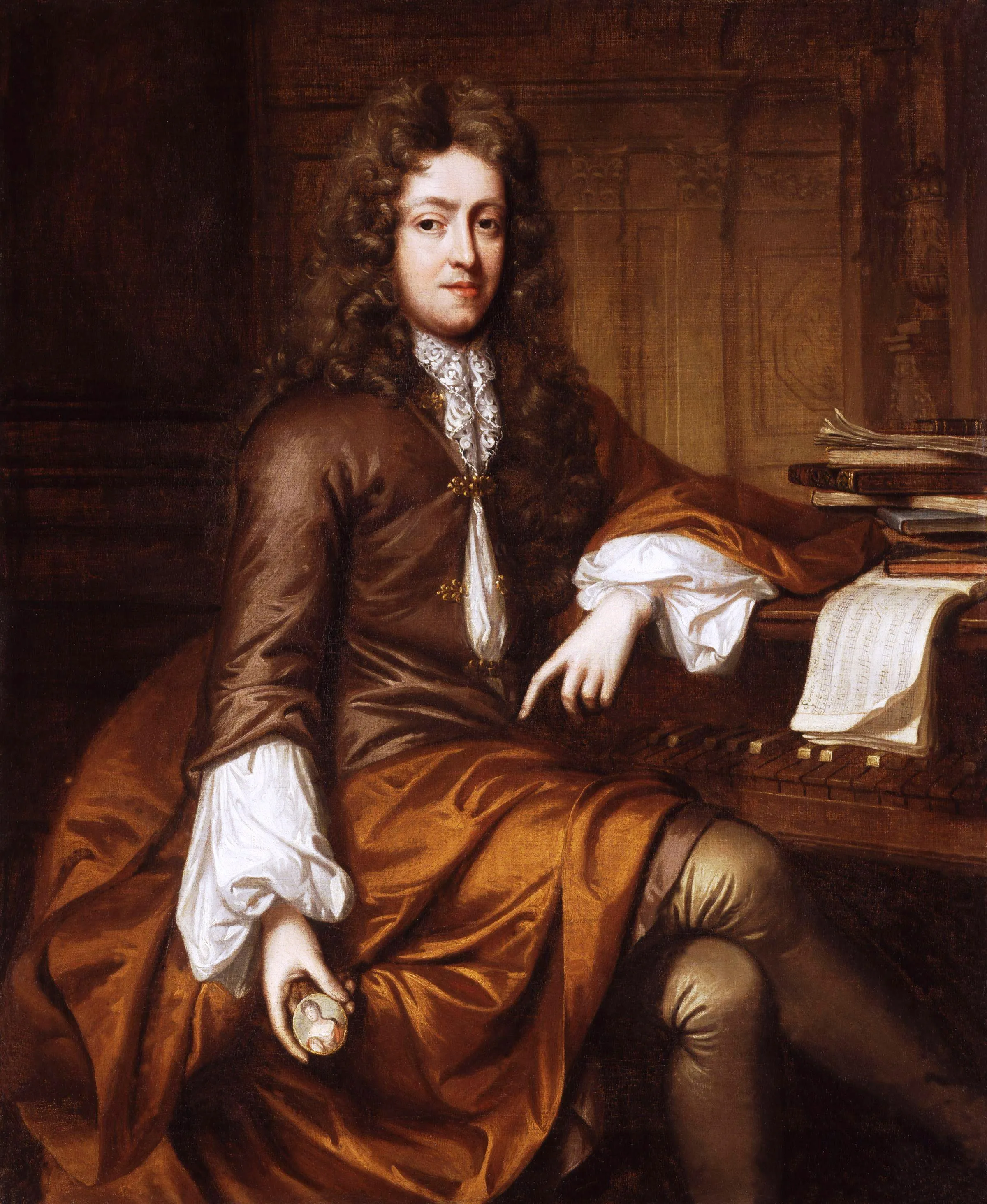 Henry Purcell
Henry Purcell
Henry Purcell (1659 - 1695) is commonly claimed to be England’s greatest composer before Elgar, Vaughan Williams and Britten. While that may be a little unfair to the great English Renaissance composers John Dunstable and William Byrd, Purcell’s music has always been said to display a distinctly “English” quality, and has always been held highly in popular opinion amongst music lovers.
(What exactly does anyone mean by an “English” quality? Well, I will suggest a certain melancholy present in even the happiest of music; or a pastoral tinge redolent of a late summer’s evening, but occasionally shot through by a blast of cold air from the North Sea: that’s a start anyway…..)
When it came to writing music for Royalty, Purcell was born into the job. His father was what was known as a “Gentleman singer” of the Chapel Royal (the institution that provided music for all the Royal chapels), and performed at the coronation of King Charles II in 1661 (which marked the Restoration of the Monarchy in purely constitutional form after the Civil War). Henry Purcell himself was a chorister in the choir, and graduated to holding concurrent positions as organist at Westminster Abbey and the Chapel Royal. Fittingly, given his later work as Royal composer, his earliest authenticated composition was a Birthday Ode for the King written in 1670 when Henry was 10.
Purcell composed various birthday odes and funeral music for the popular Queen Mary II, who reigned with her husband William from 1689 to her early death from smallpox in 1694.
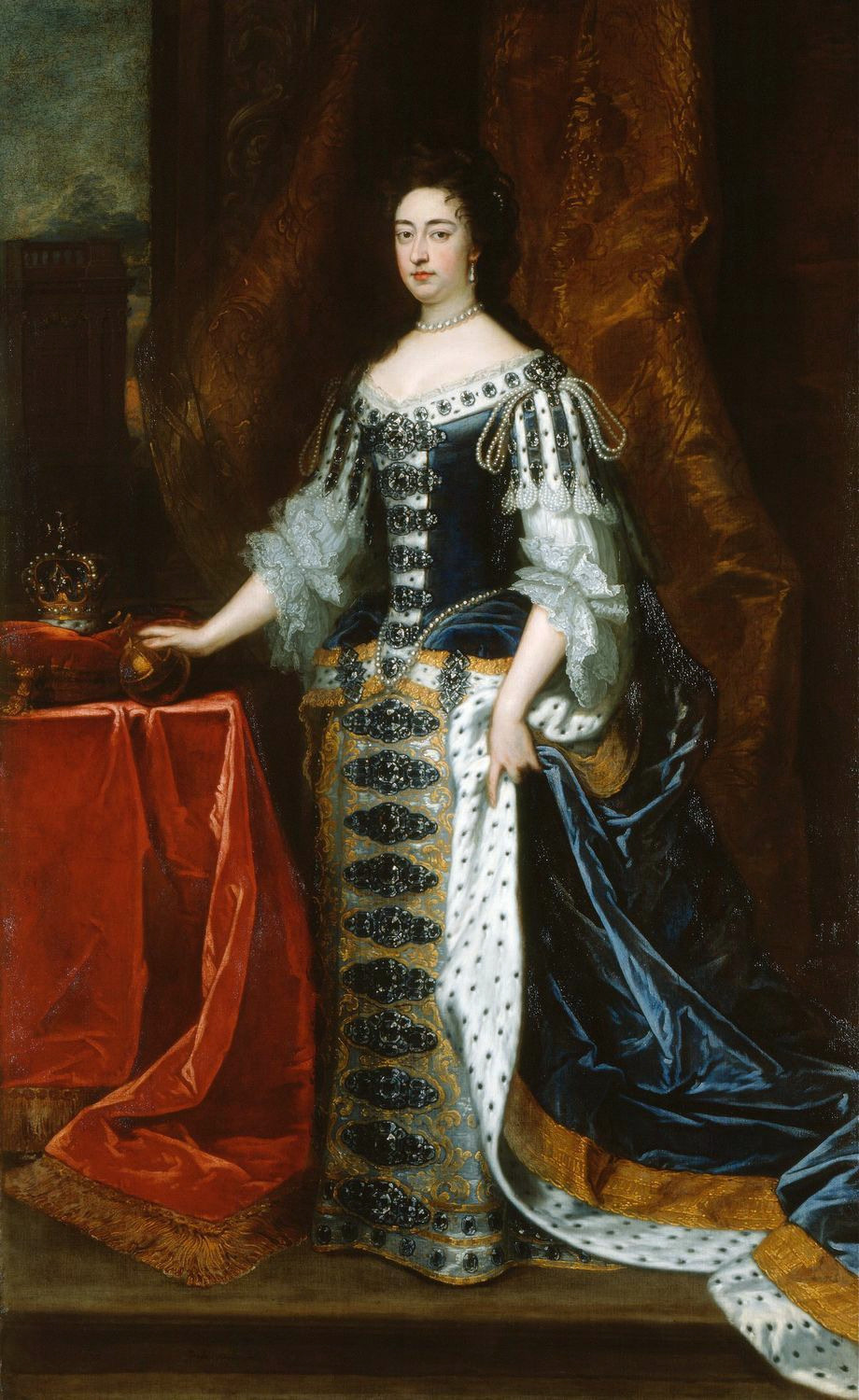 Queen Mary II in a portrait by Godfrey Kneller (1690)
Queen Mary II in a portrait by Godfrey Kneller (1690)
These works form a masterly and poignant cycle of anthems and instrumental music, and different combinations of this music have been committed to disc and vinyl by a range of choirs and early music ensembles over the years. But for me pride of place goes to a Sony CD from 1995 titled: “Music for Queen Mary”, performed by the Westminster Abbey Choir and soloists with the New London Consort under the direction of the then organist, Martin Neary.
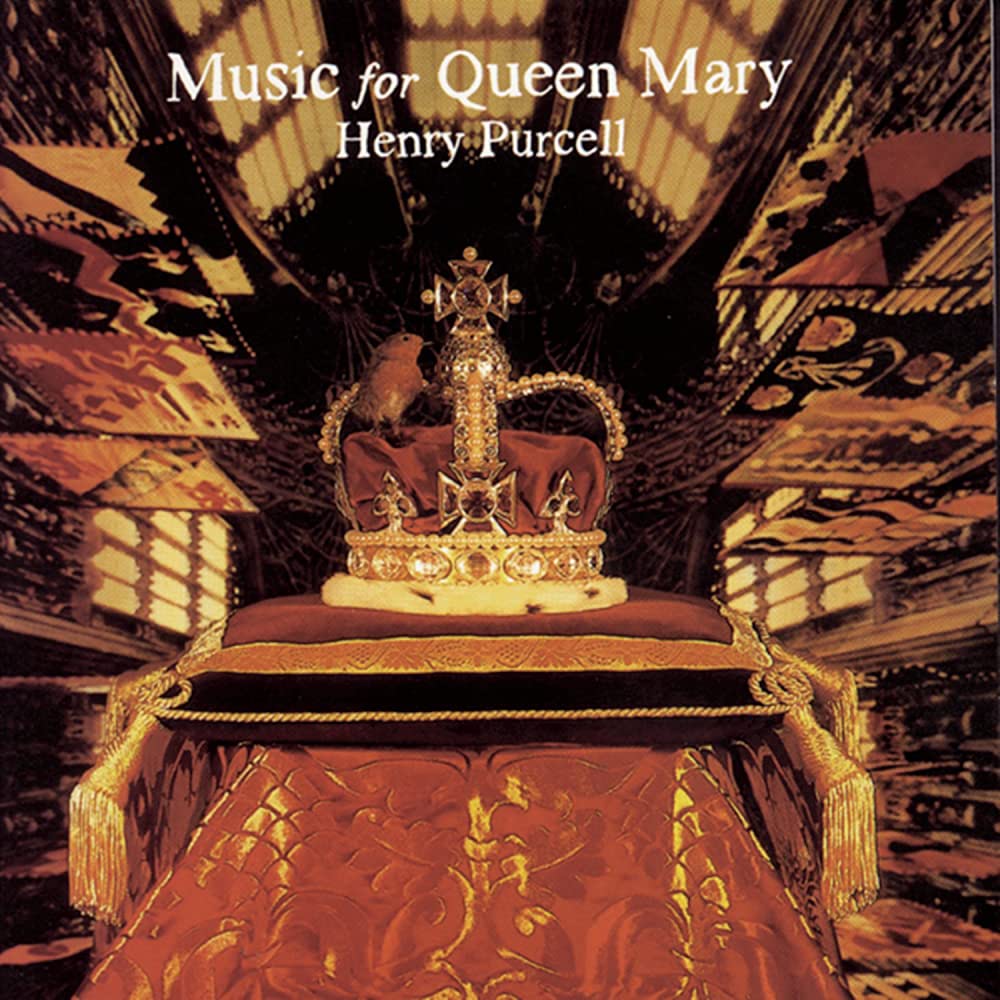 In the mid to late 90s I feel that Sony led the field sonically among the classical majors; it trumpeted loudly its Super Bit Mapping and 20-bit technology. Well, however it was done, the company honored its fine roster of musicians with some of the best CD sound of the time, and this particular recording takes you right into the all-enveloping acoustic of Westminster Abbey.
In the mid to late 90s I feel that Sony led the field sonically among the classical majors; it trumpeted loudly its Super Bit Mapping and 20-bit technology. Well, however it was done, the company honored its fine roster of musicians with some of the best CD sound of the time, and this particular recording takes you right into the all-enveloping acoustic of Westminster Abbey.
It’s a fine program of music which presents a range of Birthday Odes for the Queen, related anthems, and the most complete version of the Funeral Music committed to disc. The performances represent the very best you can get of this type of music with a Cathedral or Chapel choir.
The most striking moment comes later in the program when the ensemble launches into the marches composed and used for the Queen’s funeral service. In his excellent booklet notes (accompanied by some evocative illustrations from the period), musicologist Bruce Wood discusses in detail how he prepared his performing edition of this music, re-evaluating previous performance practice and the instruments to be used for this recording. The vivid results speak for themselves.
Purcell, like Handel, was a man of the theatre, and he knew how to convey the drama of the moment. And nothing is more dramatic or more moving than the death of a beloved monarch (as we saw in the wake of Elizabeth II’s passing). Period kettledrums ring out in the vast echoing spaces of the Abbey, joined by the bracing alarums of flat trumpets. It’s an amazing sound, and fully conveys what a member of the congregation described back on March 5th, 1695:
"…. the sound of a drum unbraced, the breaking of all the white staves of those that were officers of the Queen, and flinging in the keys of the rest of the offices devoted by that badge into the tomb….”
Listening to this recording you are right there in the Abbey as the Queen is laid to rest.
(Sharp-eared listeners will recognize Purcell’s March as the music that opens Kubrick’s A Clockwork Orange, reworked for synthesizer by Wendy Carlos).
Another highlight of this program is the extraordinary “O Dive Custos” Elegy, performed sublimely by the great early music sopranos Emma Kirkby and Evelyn Tubb.
If this CD inspires you to explore more of Purcell’s music for Queen Mary I can also recommend the CDs by the Taverner Choir under Andrew Parrott (as I can all of their recordings, many of which were first issued on vinyl, but not this one, alas); Robert King with fine soloists on Vivat; and two collections by the King’s College Choir under different music directors - Stephen Cleobury in 2006 with the Academy of Ancient Music (CD), and Philip Ledger in 1977 with ASMF on EMI vinyl.
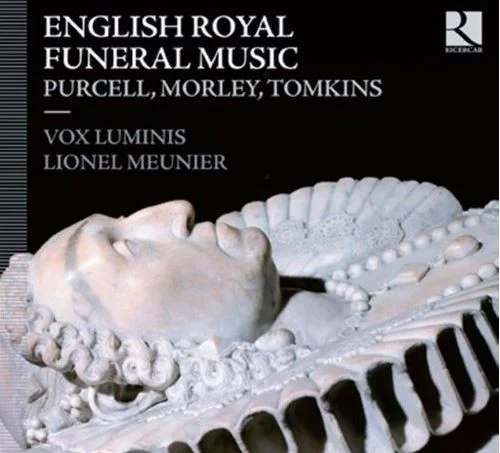
Another exceptionally fine recent CD that includes the Queen Mary funeral music is by the superb vocal ensemble Vox Luminis led by Lionel Meunier on Ricercar, titled “English Royal Funeral Music”. This is a very different approach and sound to the English Chapel Choir tradition. First of all it’s a professional chamber choir with women’s voices. Secondly, there is a very detailed approach to the text and phrasing, with individual lines coming and going, each one standing out at different moments, then becoming subsumed into the whole again. There is more of an interior ebb and flow, less of an overall blend. One result of this is there is less of a tendency of the music to default to a more dirge-like sonority and contour, and the individual phrases really register. I love this CD, and it presents some music by other composers not heard on the other recordings I’ve mentioned.
Purcell: Music for Queen Mary
Soloists, Westminster Abbey Choir, New London Consort conducted by Martin Neary
Producer: David Mottley
Engineer: Rob Rapley
Recorded in Westminster Abbey in 1994
Sony Digital CD SK 66243
Music: 10 Sound: 9
Purcell, Morley, Tomkins: English Royal Funeral Music
Vox Luminis directed by Lionel Meunier
Recorded by Jérôme Lejeune
Ricercar CD RIC 332
Music: 10 Sound: 9
Honorable Mention:
Not strictly written for a Royal Occasion, but Hans Zimmer’s theme music for The Crown is, in conjunction with the stunning animation of the show’s title sequence, the incarnation of an aspect of the monarchy that is barely touched on in all the music I have discussed above - for obvious reasons. That is, the almost crushing weight of the institution on the individual who wears the crown, and the Royal family, all vividly dramatized in the series. Every time I watch the show and see those opening titles, I remark upon the brilliance of Zimmer’s music: that twisting, turning chromatic series of chords - not quite a melody - that constantly turn inward upon each other until there is nowhere left to turn. It’s almost as if the music is devouring itself at the same time as it’s projecting a sense of grandeur and power. The Hollow Crown indeed!
It is a brilliant piece of scoring and a credit sequence for the ages.
In Conclusion:
If you’ve managed to read this far, I hope you have gained a sense of what an incredible range of music has come into being as a result of Britain’s Monarchy, music that has transcended its original ceremonial purpose to become simply great music, and I for one would not want to be without any of it.
But how does this all relate to the upcoming Coronation of a new King? Of course we live in different times even than when Charles’s mother was crowned. Institutions like the Church and the Monarchy no longer maintain that same monolithic hold on the citizenry’s sense of what it believes and what people want their lives and country to be. Whatever else you might say about the new King (and I could say plenty), Charles has consistently demonstrated an awareness that for the Monarchy to persist it must be aware of this fundamental shift in the dynamics of the relationship between the people and the so-called Establishment, of which the Monarchy is still in so many ways the leading edge.
To that end he has shortened the Coronation service itself, and commissioned, like his forbears, a wide range of new music for the occasion. Charles has always loved classical music, and studied ‘cello as a boy, so it is no surprise that he he is taking this opportunity to put his own musical stamp on the occasion. Some of this is music from contemporary British composers you would expect - Andrew Lloyd Webber, Judith Weir and Roxanna Panufnik to name a few. But a welcome sign of his awareness of the new era we live in is his embrace of music from composers from more far-flung corners of the British Isles, who grew up in different musical traditions. This is particularly reflected in the music that will be performed in the concert taking place on the eve of the Coronation, which will include music from a range of England’s Commonwealth partners that is as far away from the works of Handel, Elgar, Tippett et al as it’s possible to get - and rightly so.
Another welcome benefit of living 70 years on from Elizabeth II’s Coronation is that the whole service will be available to stream and download within hours of its completion. No doubt physical formats will follow promptly. (I believe the BBC has already released a recording of the 1953 Coronation). Not surprisingly, Andrew Lloyd Webber’s anthem “Make a Joyful Noise” has already been recorded and will be released on May 6th itself.
Given the extraordinary range, variety and quality of the so-called “Royal Music” that has helped mark and celebrate the history of this small island nation, there is every reason to hope and believe that new works will come along that are every bit their equal. And where better place to start than the Coronation itself.
“Vivat!” indeed!
Footnote on the Role of Religion and Christian Liturgy in the British Monarchy and Royal Music
When I started writing what has turned out to be this somewhat longer account of British Royal Music on Record than I had originally imagined or intended, I prefaced my dive into the recordings with a brief account of the role of religion in the Monarchy and the music written for its ceremonies.
For anyone not familiar with how religion is bound up with the State in England, it might come as a bit of surprise to learn just how much Christian theology and liturgy is part of these rituals. (Maybe most puzzling for an American where the Constitution specifically separates Church and State - at least in theory).
So I thought some explanation was due, allied with my own take on how it is possible to embrace this “religious music” without necessarily being a true believer in either the Church, Christianity, or the Monarchy. Then I realized this got into the weeds a little bit too much at the head of an article supposedly about music and records! But this is important stuff to articulate, even if only to make the history clear to someone who hasn’t grown up with this being part of their daily life, as it was for most British children when I was growing up, and still is to some extent today. So here it is…..
It’s important to understand some of the history of the Monarchy in Britain and its relationship to religion, all of which have a bearing on much of the ceremonial music I will be discussing. (There will also be some examples of music written for more secular Royal occasions). The Monarchy, like that other monolithic institution the Church, has always understood the power of music to “sell the message”. And in England there is an especially close relationship between the two, by virtue of the fact that the Monarch is also the Supreme Governor of the Church of England.
When Henry VIII broke away from Rome and the Catholic Church so that he could divorce his first wife and remarry “legally” (thus legitimizing any subsequent male child as Heir apparent), he appointed himself as Head of the Church of England. Essentially he made himself God’s representative on Earth so that he could make new laws that suited his purposes, but which in the eyes of Rome (and British Catholics) contravened well-established Church - and therefore Divine - doctrine.
In the turbulent years that followed Henry’s death, when his Catholic daughter Mary attempted to re-establish the ties with Rome, and then Elizabeth I re-affirmed herself as the Head of the Church of England, recognizing that the title “Head” seemed to place the Monarch above Christ in the hierarchical religious pecking order on Earth, with all the attendant problems that might entail, the title was changed to Supreme Governor.
Some five decades later, in the wake of the turbulence of the Civil War which saw Charles I beheaded in 1649, Parliamentarian rule was made the pre-eminent form of government. The Restoration of the Monarchy, which brought Charles II back to the throne in 1660, was enabled only by the King acceding to a position with little or no power to make laws and govern: hence the so-called Constitutional Monarchy that has prevailed to this day.
It is because of the religious element of the British Monarch’s position that much of the music written for Royal ceremonial occasions, especially the Coronation, is based on religious texts. This identification of the Monarch with the Divine has inspired diverse composers (some even of the Catholic faith like William Byrd) to write music that in many ways transmits religious faith to one degree or another. It just so happens that in doing so they are celebrating an earthly personage of flesh and blood rather than God or Christ.
It’s not lost on anyone, least of all the Monarchy or the Church, that music can be the most powerful conveyor of ideas of majesty, transcendence, and the Divine. Music gets past our natural defenses and is a powerful propaganda tool. It elevates the mundane, and makes the transcendental idea or emotion tangible, achievable. Not to put too fine a point on it, it is the spoonful of sugar that makes the medicine go down.
Do I sound cynical? Maybe. But with regards to the function of music in promoting religion or the monarchy I can hold two opposing thoughts in my head simultaneously: that on the one hand I, personally, do not necessarily believe in the ideas or doctrine being promoted by either institution, while on the other hand I recognize the value of many of the aspirational ideas embodied in same, and I am fully onboard with the beauty and power of the music that is expressing them.
I guess, like many Brits ostensibly brought up in the Church of England faith, our relationship to the state religion, and the monarchy, is a more pragmatic affair, tinged with not a little skepticism.
Nevertheless, we do still love all that fantastic music!


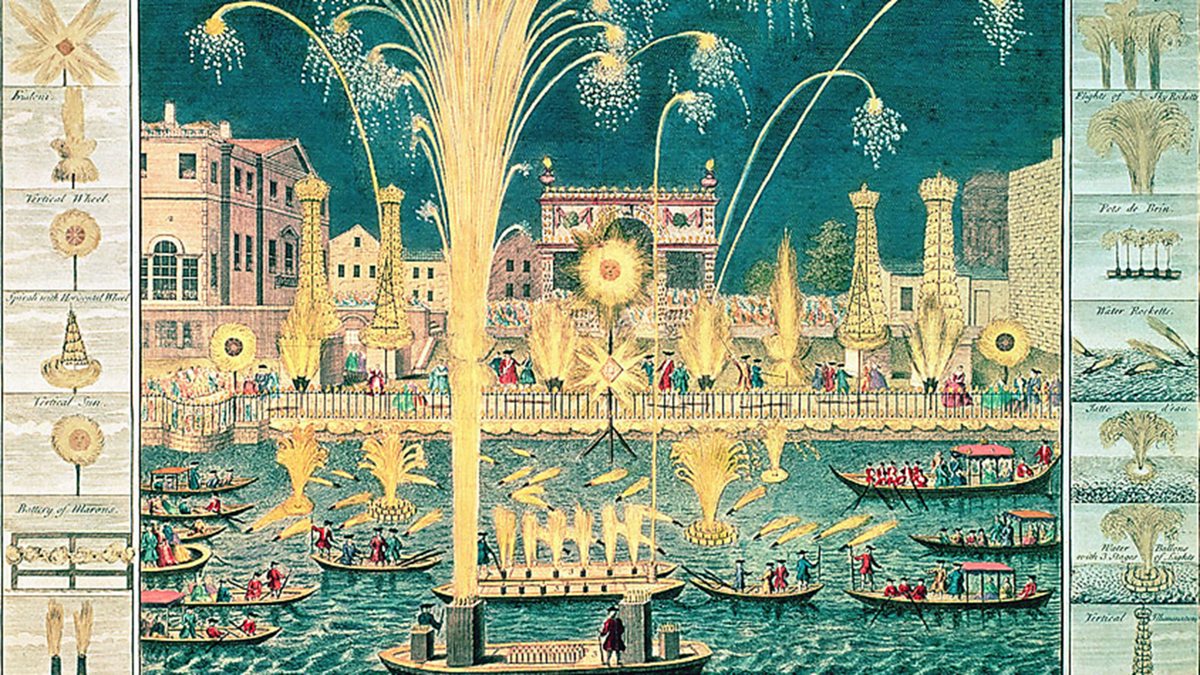




































.png)








